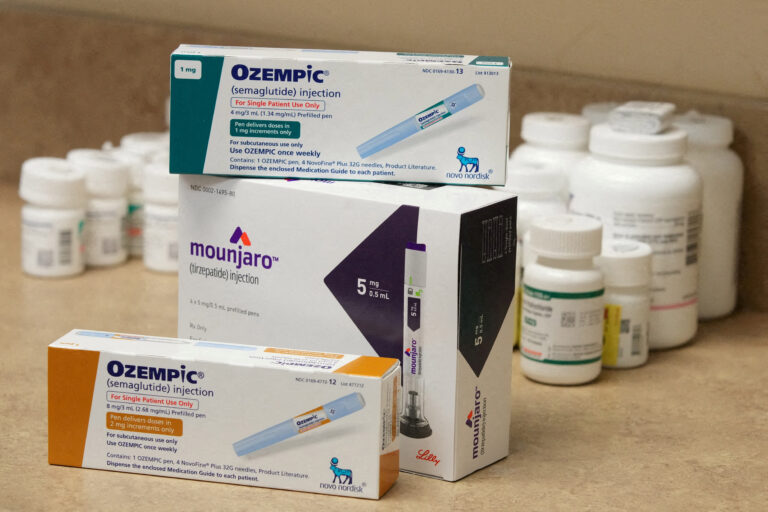Can Weight Loss Drugs Help Reduce Alcohol Intake? A Comprehensive Review
Table of Contents
ToggleCan Weight Loss Drugs Help Reduce Alcohol Intake?
A Comprehensive Review

Weight loss drugs, particularly GLP-1 receptor agonists like semaglutide (used in medications like Ozempic and Wegovy), are well-known for helping manage obesity. However, scientists have observed an intriguing side effect: many users also report drinking less alcohol. This opens the door to new possibilities for treating alcohol dependence, which remains a significant health challenge.
If you’re wondering how weight loss drugs might impact alcohol intake, this article dives into the science, evidence, and future potential. Whether you’re interested in understanding how these medications work or exploring solutions like buyinsulin, read on for answers grounded in the latest research.
1. The Connection Between Obesity, Alcohol Use, and Weight Loss Drugs
Obesity and alcohol use frequently coexist, often compounding health problems. Studies have shown that people with obesity are more likely to engage in heavy drinking, possibly because of overlapping neural pathways that govern reward-seeking behavior.
Weight loss drugs such as GLP-1 receptor agonists target these very pathways. By regulating hunger and satiety signals, they may also influence cravings for substances like alcohol. This dual action has sparked interest in using these medications for more than just weight management.
2. How Weight Loss Drugs Reduce Alcohol Cravings

The ability of GLP-1 receptor agonists to curb alcohol cravings lies in their effect on the brain’s reward system. These drugs, including semaglutide and liraglutide, increase the release of insulin while reducing appetite. Interestingly, they also seem to blunt the rewarding sensations from alcohol consumption, which helps reduce cravings.
Research from the American Diabetes Association (diabetes.org) highlights that GLP-1 receptor agonists affect dopamine release, the chemical responsible for feelings of pleasure. By modulating this pathway, these medications may reduce alcohol’s appeal.
3. Clinical Evidence: Do Weight Loss Drugs Reduce Alcohol Intake?
The scientific evidence so far is promising:
– Animal Studies: Preclinical trials show that rats treated with GLP-1 receptor agonists consumed significantly less alcohol. This suggests a strong neurochemical basis for the drugs’ dual action.
– Human Trials: Research published by the Endocrine Society (endocrine.org) indicates that patients using semaglutide for weight loss also reported lower alcohol intake. While sample sizes remain small, the trend is consistent.
– Long-Term Observations: Many patients on these drugs for extended periods note sustained reductions in alcohol consumption. Some studies suggest this effect could last even after discontinuing the medication.

4. Popular Weight Loss Drugs Studied for Alcohol Reduction
Several anti-obesity drugs have been explored for their impact on alcohol use. Here’s a closer look at the most notable ones:
– Semaglutide (Ozempic, Wegovy): This GLP-1 receptor agonist is the most researched drug for reducing alcohol cravings. It works by targeting reward circuits in the brain while controlling hunger.
– Liraglutide (Saxenda): Another GLP-1 receptor agonist, liraglutide shows similar promise, although fewer studies focus on its effects on alcohol use.
– Bupropion/Naltrexone (Contrave): Known for targeting addiction pathways, this combination drug has potential for reducing both weight and alcohol consumption.
5. Risks and Considerations When Combining Weight Loss Drugs with Alcohol
While the evidence is exciting, using weight loss drugs to reduce alcohol intake isn’t without risks. Here’s what patients and providers need to consider:
– Side Effects: Common side effects of GLP-1 receptor agonists include nausea, diarrhea, and fatigue. Adding alcohol to the mix may exacerbate these symptoms.
– Drug Interactions: Alcohol can interfere with the effectiveness of these medications, particularly in managing blood sugar levels for people with diabetes.
– Addressing Root Causes: While weight loss drugs may reduce alcohol cravings, they don’t address the psychological or social factors behind addiction. Behavioral therapy or counseling may still be necessary.
6. The Future of Weight Loss Drugs in Alcohol Addiction Treatment
The discovery that weight loss drugs may reduce alcohol intake has sparked interest in developing new treatments for alcohol dependence. Here’s what the future might hold:
– Dedicated Research: Large-scale clinical trials are already underway to better understand the dual benefits of these medications.
– Combination Therapies: Future treatments could pair GLP-1 receptor agonists with behavioral therapies for a comprehensive approach.
– Public Health Impact: With obesity and alcohol use disorder affecting millions globally, these drugs could significantly improve public health outcomes.
Conclusion
Weight loss drugs like Semaglutide not only help manage obesity but may also reduce alcohol cravings, offering a surprising dual benefit. Although the research is still in its early stages, these findings could pave the way for innovative treatments for alcohol dependence.
References
· Medscape: Do Patients on Anti-Obesity Drugs Decrease Alcohol Use?
· NIAAA: https://www.niaaa.nih.gov/
· American Diabetes Association: https://diabetes.org/
· Endocrine Society: https://www.endocrine.org/
· Mayo Clinic: https://www.mayoclinic.org/
· World Health Organization: https://www.who.int/